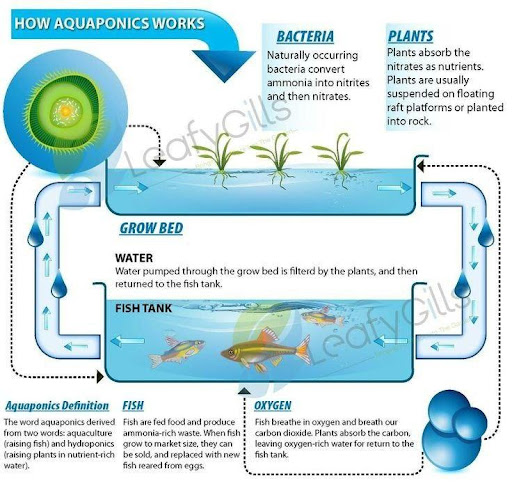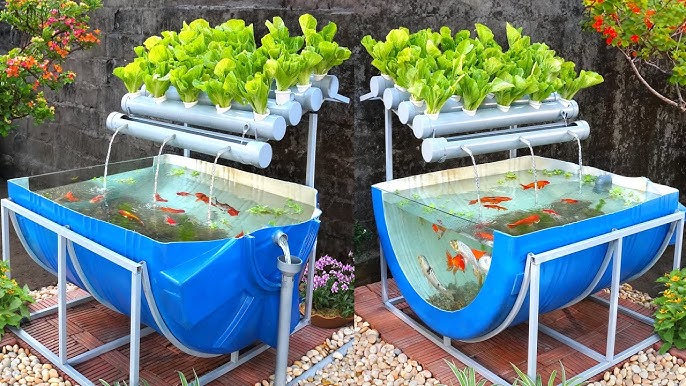Aquaponics is a sustainable food production system that combines fish farming (aquaculture) with soil-less plant cultivation (hydroponics) in a closed-loop, symbiotic environment. Fish waste provides organic nutrients for plant growth, while plants filter and clean the water, which is recirculated back to the fish tanks.
This highly efficient system uses up to 90%less water than traditional agriculture, requires minimal land, and produces both protein (fish) and vegetables simultaneously. It is ideal for urban environments, drought-prone regions, or areas with poor soil quality.
Aquaponics can be implemented at household, community, or commercial scales and is often powered by solar energy to increase sustainability. It is promoted globally as a climate-resilient food system, often supported by educational institutions, NGOs, and green innovation hubs.



